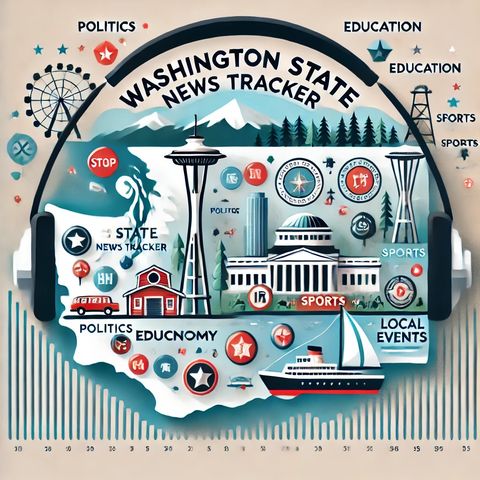Washington's Green Dilemma: Balancing Climate Action and Economic Realities in the Ongoing Gas Stove Debate

Download and listen anywhere
Download your favorite episodes and enjoy them, wherever you are! Sign up or log in now to access offline listening.
Washington's Green Dilemma: Balancing Climate Action and Economic Realities in the Ongoing Gas Stove Debate
This is an automatically generated transcript. Please note that complete accuracy is not guaranteed.
Description
Washington State has been at the forefront of implementing progressive environmental policies in the United States, particularly under its Democratic leadership. Despite these policies, the state has faced contradictions and...
show moreWashington's commitment to clean energy and environmental sustainability is demonstrated by its extensive policies aiming to reduce carbon emissions and promote renewable energy sources. The state has set ambitious targets to decrease its carbon footprint, including a phased approach to eliminating fossil fuel usage in various sectors. Washington has also invested in public transportation and infrastructure to support electric vehicles.
However, the debate over natural gas usage, specifically in relation to gas stoves, showcases the complexities of environmental policymaking. Natural gas is a significant energy source for residential and commercial cooking in Washington. While it is cleaner than some other fossil fuels, such as coal, it still contributes to greenhouse gas emissions. Advocates for the environment push for a shift towards electric stoves and ovens, arguing that electricity can be generated from renewable sources, thereby reducing overall emissions.
The economic implications of such a shift are substantial. The natural gas industry supports thousands of jobs in Washington and represents a considerable part of the state's economy. A move away from natural gas would not only affect those directly employed by the industry but could also increase costs for consumers if alternatives are more expensive or less efficient.
Washington State's leadership is in a challenging position, trying to lead on climate action while also considering the economic and social impacts of such policies. This situation is emblematic of broader issues faced by many governments attempting to transition towards more sustainable practices. The resolution to these challenges will require innovative solutions, collaboration across various sectors, and perhaps most importantly, public support and understanding.
Navigating these dynamics will be crucial for Washington as it aims to meet its environmental targets and foster an economy that is both prosperous and sustainable. The ongoing discussions about gas stoves and other similar issues will likely continue to be a microcosm of the larger debates about energy, technology, and the environment in Washington and beyond.
Information
| Author | QP-4 |
| Organization | William Corbin |
| Website | - |
| Tags |
Copyright 2024 - Spreaker Inc. an iHeartMedia Company

Comments